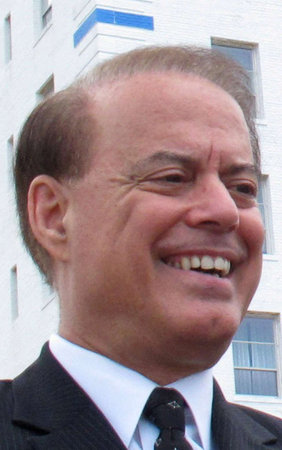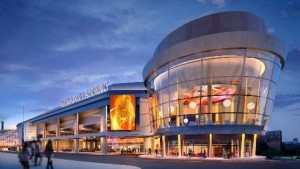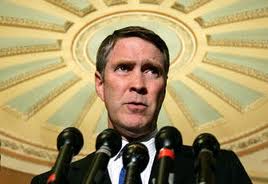 There are few real characters in the casino industry anymore. Dennis Gomes (1944-2012) was one of them. His recent death put a premature “full stop” on one of the most colorful and wide-ranging careers gaming has seen. After all, how many people can claim to have been a casino regulator in both New Jersey and Nevada, or to have run 14 casinos from Las Vegas to Atlantic City, plus a few in “flyover country.” The Philadelphia Inquirer offers a fitting appraisal of Gomes’ life, a veritable ‘Who’s Who’ of gambling, with supporting characters who range from Lefty Rosenthal to Donald Trump, with some more-reputable personages in the mix. “[Gomes] fully grasped that casinos are, at least theoretically, all about fun and excitement and creating a fantasy world for customers. He got it that the “Wow!” factor was as important as clean towels and honest games.”
There are few real characters in the casino industry anymore. Dennis Gomes (1944-2012) was one of them. His recent death put a premature “full stop” on one of the most colorful and wide-ranging careers gaming has seen. After all, how many people can claim to have been a casino regulator in both New Jersey and Nevada, or to have run 14 casinos from Las Vegas to Atlantic City, plus a few in “flyover country.” The Philadelphia Inquirer offers a fitting appraisal of Gomes’ life, a veritable ‘Who’s Who’ of gambling, with supporting characters who range from Lefty Rosenthal to Donald Trump, with some more-reputable personages in the mix. “[Gomes] fully grasped that casinos are, at least theoretically, all about fun and excitement and creating a fantasy world for customers. He got it that the “Wow!” factor was as important as clean towels and honest games.”
 Whether it was risqué or politically incorrect, Gomes was willing to try anything to promote his casinos: Barack Obama and Fidel Castro impersonators, a gay disco and, most famously, the tic-tac-toe-playing chicken of Tropicana Atlantic City. (One of my proudest accomplishments was getting that chicken onto the cover of Global Gaming Business in 2003, under the headline, “Poultry in Motion.”) Most recently, Gomes was turning around Resorts Atlantic City in dramatic fashion, after Colony Capital had thoroughly cratered the property. He ruffled a few feathers, you might say, in the process. One of Gomes’ legacies to Resorts is a spate of lawsuits involving a humiliating “audition” process whereby he rid the casino of its older and less-shapely cocktail waitresses.
Whether it was risqué or politically incorrect, Gomes was willing to try anything to promote his casinos: Barack Obama and Fidel Castro impersonators, a gay disco and, most famously, the tic-tac-toe-playing chicken of Tropicana Atlantic City. (One of my proudest accomplishments was getting that chicken onto the cover of Global Gaming Business in 2003, under the headline, “Poultry in Motion.”) Most recently, Gomes was turning around Resorts Atlantic City in dramatic fashion, after Colony Capital had thoroughly cratered the property. He ruffled a few feathers, you might say, in the process. One of Gomes’ legacies to Resorts is a spate of lawsuits involving a humiliating “audition” process whereby he rid the casino of its older and less-shapely cocktail waitresses.
Gomes was no stranger to controversy. His first claim to fame was sussing out and shutting down a Mafia skimming operation on the Las Vegas Strip. In Martin Scorcese‘s Casino, Gomes is reprehensibly depicted as stone-faced twin brothers (!). At least some of us will remember him, in the main, as someone who rendered an important public service and went to on to become one of the resourceful operators the industry has seen.
“It’s like fantasy land.” So says Michigan State University academic Matthew Fletcher of a potential casino expansion that would make ongoing shenanigans in Illinois look tame. A scrum of four tribes and two initiative-and-referendum drives could salt Michigan with 22 additional casinos. I mean, Detroit‘s been one of the few feel-good stories of the Great Recession (casino-wise, that is), but still …
 Private-sector group Michigan First is proposing to add four casinos to the Detroit market, plus one apiece for Lansing, Grand Rapids and Cadillac, plus one in the general vicinity of Flint. Both MGM Grand Detroit and Greektown Casino — along with a pair of tribes — are backing opposition group Project MI Vote, attempting to head this $50 million ballot drive off at the pass. Lansing is also coveted by the Sault Ste. Marie Tribe of Chippewa Indians (who would co-own Kewadin Lansing Casino, left, with the city itself, creating a major anomaly), as well as by the second private-sector group, Michigan Is Yours. The latter wants to add seven casinos, including one in Detroit. One analyst predicts that the state could absorb another five casinos. However, the $1.4 billion question is how much revenue Hollywood Casino Toledo is going to siphon from Motown when it opens this spring. Tribal projects aside, voters could approve 7-15 casinos next fall. If that happens, it’s difficult to imagine the “supply shock” as anything other than severe. But that’s the electorate’s gamble to take.
Private-sector group Michigan First is proposing to add four casinos to the Detroit market, plus one apiece for Lansing, Grand Rapids and Cadillac, plus one in the general vicinity of Flint. Both MGM Grand Detroit and Greektown Casino — along with a pair of tribes — are backing opposition group Project MI Vote, attempting to head this $50 million ballot drive off at the pass. Lansing is also coveted by the Sault Ste. Marie Tribe of Chippewa Indians (who would co-own Kewadin Lansing Casino, left, with the city itself, creating a major anomaly), as well as by the second private-sector group, Michigan Is Yours. The latter wants to add seven casinos, including one in Detroit. One analyst predicts that the state could absorb another five casinos. However, the $1.4 billion question is how much revenue Hollywood Casino Toledo is going to siphon from Motown when it opens this spring. Tribal projects aside, voters could approve 7-15 casinos next fall. If that happens, it’s difficult to imagine the “supply shock” as anything other than severe. But that’s the electorate’s gamble to take.
 Online poker pros. Yes, such people exist. Life after UIGEA hasn’t been a picnic for them, some of whom have fled to Costa Rica. Phoenix New Times provides an extensive recapitulation of how UIGEA was snuck into place by the sanctimonious Bill Frist (left) and by Sen. Jon Kyl (R-AZ), and the real-life impact that has ensued. (For one thing, it has culled the mind-numbing proliferation of televised poker tournaments.) In the case of the Internet pros, they knew — or should have known — the risks they were running. One can’t quite look upon them as victims, despite the crassness with which Congress stamped out their livelihoods. One might add that none of the pros who are profiled displays what you would call sound judgment, often displaying pathological-gambling symptoms. After reading New Times‘ chronicle, one would be forgiven for concluding that Frist and Kyl did them a favor. From a bidness standpoint, if the pre-UIGEA online-poker industry was a $2.5 billion enterprise, you wonder how much of a revenue panacea it is both for casino companies and states. If Caesars Entetainment really plans to use Internet poker rake to dig itself of its LBO hole, it won’t have a big enough shovel.
Online poker pros. Yes, such people exist. Life after UIGEA hasn’t been a picnic for them, some of whom have fled to Costa Rica. Phoenix New Times provides an extensive recapitulation of how UIGEA was snuck into place by the sanctimonious Bill Frist (left) and by Sen. Jon Kyl (R-AZ), and the real-life impact that has ensued. (For one thing, it has culled the mind-numbing proliferation of televised poker tournaments.) In the case of the Internet pros, they knew — or should have known — the risks they were running. One can’t quite look upon them as victims, despite the crassness with which Congress stamped out their livelihoods. One might add that none of the pros who are profiled displays what you would call sound judgment, often displaying pathological-gambling symptoms. After reading New Times‘ chronicle, one would be forgiven for concluding that Frist and Kyl did them a favor. From a bidness standpoint, if the pre-UIGEA online-poker industry was a $2.5 billion enterprise, you wonder how much of a revenue panacea it is both for casino companies and states. If Caesars Entetainment really plans to use Internet poker rake to dig itself of its LBO hole, it won’t have a big enough shovel.

